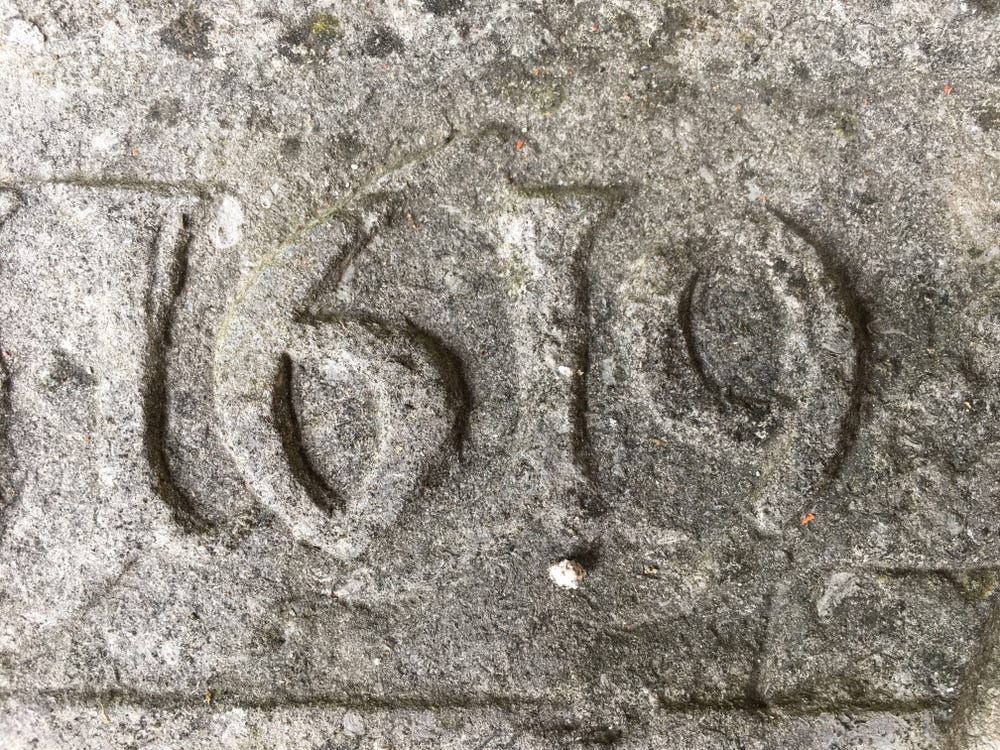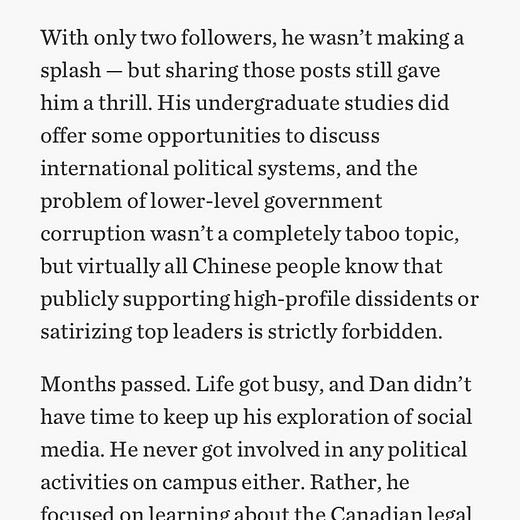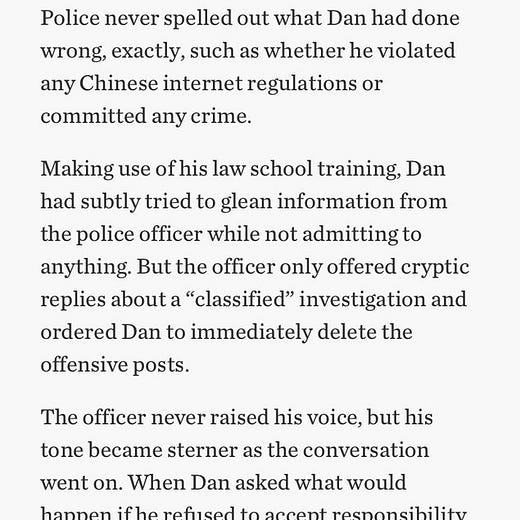E-Pluribus | September 21, 2021
Is a return to classical liberalism enough, a liberal critique of the 1619 Project, and when experts are wrong.
A round up of the latest and best writing and musings on the rise of illiberalism in the public discourse:
Barton Swaim: Hope for the Lost Souls of Liberalism
At The Wall Street Journal, Barton Swaim takes a look at thoughts on liberalism as presented in a book by two Furman University professors, Benjamin and Jenna Silber Storey. While many these days (including we here at Pluribus) are calling for a reawakening of classical liberalism, the Storeys argue that even such a return will not solve all the ills of society without confronting even deeper issues of meaning that they say liberalism fails to address.
I have read many critiques of liberalism, but none so original as “Why We Are Restless: On the Modern Quest for Contentment” by Benjamin Storey and Jenna Silber Storey. Or perhaps it's more accurate to say the book doesn’t so much criticize liberalism as explain why it’s neither the cause of our problems nor their solution.
[…]
At the core of their book is the reflection that educated people in modern liberal democracies are very comfortable with proximate arguments and not at all with ultimate ones—in other words, that moderns can debate means but not ends.
What do they mean by “ends”? “I teach Plato’s ‘Gorgias,’ ” Mr. Storey says. “ Socrates is arguing with Callicles about what the best way of life is. And so I will ask my students: What’s the best way of life? Just like that. The standard response is: What are you talking about? They look at me as if to say: You can’t ask that question!”
So it is, he thinks, in liberal societies generally: We’re allowed to debate all questions but ultimate ones. “We’re assuming we can’t have an answer to these questions, without even asking them.” In the classroom, he says, both he and his wife “try to shift students from a stance of dogmatic skepticism, in which they assume before the inquiry begins that you can’t ask ultimate questions, to a place of zetetic or seeking skepticism, in which you recognize that, despite all your doubts and apprehensions, you have to at least ask questions about God and the good and the nature of the universe.”
Read the whole thing.
Dan McLaughlin: Sean Wilentz Fires Back on the 1619 Project and the Climate of Anti-History
This summer, Princeton University historian Sean Wilentz published a long essay that takes apart the New York Times’s 1619 Project as unscholarly and even juvenile. Dan McLaughlin writes at National Review that although Wilentz is clearly liberal and at times a partisan Democrat, he’s managed to upset progressives with his defense of the Constitution and the founding of the country and his critique of the Nikole Hannah-Jones led project.
In a thoughtful but unsparing essay titled “The 1619 Project and Living in Truth” in the Czech historical journal Opera Historica, Wilentz has fired another salvo against the 1619 Project, its editor and lead essayist Nikole Hannah-Jones, Times Magazine editor in chief Jake Silverstein, and more broadly, the intellectual climate of “anti-racist” politics that produce warped history while intimidating serious scholars into silence. Wilentz is scathing on Hannah-Jones’s preposterous and unsupported claim, in the lead essay, that “one of the primary reasons” for the American Revolution and Declaration of Independence was American colonial fear that the British would restrict or abolish slavery[.]
[…]
Wilentz notes that he believed, naïvely, that the Times Magazine would correct the record without much difficulty if approached by distinguished historians with the truth on their side. But, of course, that misunderstands both the narrative goals of the 1619 Project and the power of Hannah-Jones (backed by devotees of that narrative) within the Times organization, a subject Wilentz touches upon. That narrative, which is a classic of the critical race theory approach to history, needed the American Founding to be irredeemably corrupted by racism and slavery as its core purposes; thus, even though Hannah-Jones’s essay would read perfectly well without the discussion of the Revolution at all, it was intolerable to her and her aims to amend that conclusion. And her power in the organization meant that, if never admitting error on this point was important to her, it would be important to Silverstein, truth be damned. Critics were there to be silenced or dismissed, not engaged in respectful debate.
Read it all.
Richard Hanania: ‘Just Trust the Experts,’ We’re Told. We Shouldn’t.
While “experts” have come under increasing scrutiny during the pandemic, Richard Hanania examines the state of expertise in light of the failures of Afghanistan policies over the past two decades. Though Hanania’s solutions may lean too heavily upon government to address the expertise crisis, the decline of trust in institutions and accompanying attraction to charismatic political figures who speak with authority is a real problem that cannot be overlooked.
What Afghanistan shows is that we need a new definition of expertise, one that relies more on track records and healthy cognitive habits and less on credentials and the narrow forms of knowledge that are too often rewarded. In an era of populism and declining trust in institutions, such a project is necessary to put expertise on a stronger footing.
[…]
Public intellectuals and the media can do better by making use of tools based on the principle of accountability and recognizing the mantra of “trust the experts” as an appeal to authority rather than excellence. In an ideal world, the greatest sin for an intellectual would not be getting something wrong but speaking on an issue in a way that makes it impossible to judge accuracy in the first place.
Changing how we think of expertise can lead to greater trust across partisan and educational lines, as processes for awarding power and prestige would come to rely more on proven ability and less on the approval of elite institutions lacking either ideological or socioeconomic diversity.
Read it all here.
Around Twitter
A thread from Peter Boghossian on Time’s 100 Influential People list and “diversity” (click through for the whole thing):
Sarah McLaughlin on the long, authoritarian arm of China:
Via Glenn Greenwald (click through for more), that Hunter Biden laptop story that provoked Twitter to suspend the New York Post wasn’t fake news after all:
And finally, Amazon’s curious treatment of Ryan Anderson’s book versus a “summary” of his book:













